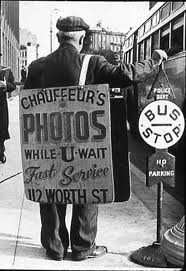The Death of the Cyberflâneur – NYTimes.com.
Lots of good things to think about in this article. However, as Mark Twain quipped once about a newspaper that said he had died, this particular “death” too may be somewhat exaggerated.
1. The author is overly romanticizing the flaneur figure’s anonymity and independence. Flaneurs like Baudelaire and Benjamin thrived in social networks and wrote articles about the powers of being invisible—published ideas that the author has here condensed as a handy list re how properly to be a flaneur.
2. Are the social networks in which we function really primarily enforcers of “group think” conformity? Is that really what happens when we go to events with friends and discuss them afterwards, for instance? (Or comment on stuff our friends or friends of friends have posted.) Sure, it’s one way networks can function, but this article creates extremes: romanticizing the flaneur’s independence, condemning the crowd’s conformity.
3. Benjamin’s claim about the demise of the flaneur is really haunting, in part because it undoes this article’s easy dichotomies. Benjamin imagines a flaneur reduced to strolling the streets as a sandwichman, with ads on his front and back. Yet in the modern city couldn’t such a job be the perfect disguise for a real flaneur and his plot of watching without others knowing he’s doing so? Couldn’t his hyper legibility in a consumer society (most people will see his ads, not him) heighten his ability to work invisibly?


Pingback: Ascent of the Cyberflâneur | virtualDavis